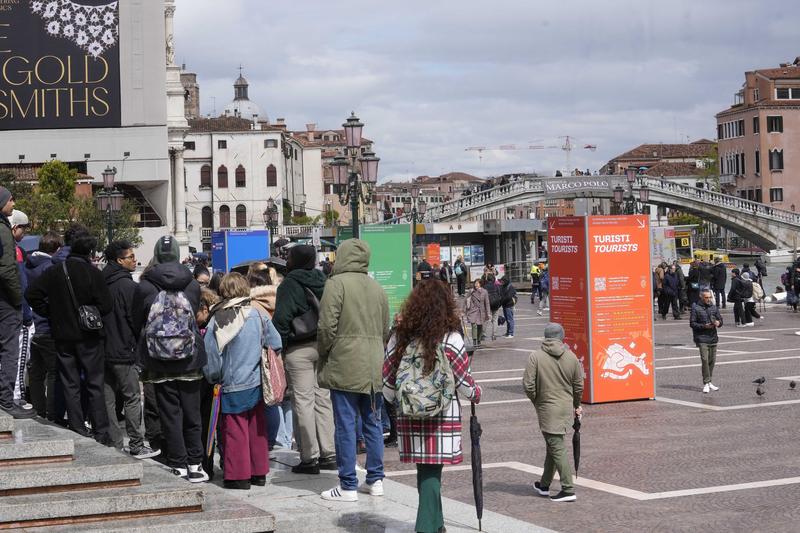British tabloids have recently launched a full-on campaign on the impact of Romanian immigrantion in the UK. Tabloids like The Sun and Daily Mail warned the British population about the “invasion” that was about to happen, with Romanians landing on British airports and then taking up stealing, begging, and illegal selling of steel. News about over-booked flights and supplemented coaches were spun in the media cycle. (see articlehere)

As the 1stof January 2014 arrived, so did the invading Romanians. The only issue was that once the doors opened, there was nothing of the kind that had been described by the British press. Most of the Romanians that arrived at Luton Airport, where Keith Vaz, with most of the British media in toe insisting on met them personally. They proved to be merely returning from their vacation in Romania, and of the 160 places in the first plane to hit the ground at Luton Airport, only 130 places were filled. In fact, in the entire plane Keith Vaz and the journalists could only find two Romanians coming to work for the first time – a dentist and somebody who went to work in a car wash and became an instant media celebrity. It was hardly an invasion. Still, the British press mentioned that in the following period, the Romanian workers may still arrive in their millions[i], but facts and reasonable inference from those facts prove otherwise.
Immigration and basic Maths
Let’s start with a basic math check. “When controls imposed in 2005 are lifted tomorrow, 29 million from the two countries will gain the right to work in Britain”, noisily crowed the Daily Mail, producing 58.000 shares for its sensationalist and very poorly researched article. However, the Romanian National Institute of Statistics has published the definitive results of the latest census of Romanians, who are all in all 20.1 million[ii]. Bulgarians are 7.3 million in total[iii], with the CIA Factbook estimating an even lower 6.9 million. In conclusion, the addition of 20.1 million and 7.3 million leads the tabloid to conclude that 29 million will gain the right to work in Britain. Basic addition must be one of the strong points of a Daily Mail journalist (Arthur Martin and John Stevens in particular, in this case), since the estimate of the combined population of two EU member states is off the mark by a spectacular 1.6 million people.
So, how about any numbers for people actually planning to invade Britain, of those millions that do exist? In a professional poll done for the BBC Newsnight program in April of 2013, the number of Romanians actually considering moving to work in the UK is, wait for it, 1%. At these small numbers, we are literally in the margin of error – and of course considering moving are not all actually moving straight away. Even if we were to take the heroic assumptions that all those who were polled as intended to leave will in fact leave in the next two years, and even if all those leaving went towards the UK (when in fact Germany, France and 7 other countries have also opened their borders) , the number we would be talking about is in the region of 201.000 people of over two years for a population of 63.7 million[iv]. This is compared to 1.4 million Indians, 1.1 million Pakistanis and 1.9 million African/ Caribbean[v].
We must also try to connect the number of Romanians saying they intend to move with the numbers already in Britain, to get a sense of what is realistic – the slope of the immigration could potentially be getting slightly steeper following the permission to work, but the freedom to travel was already introduced from January 1st, 2007, upon the EU accession of Romania and Bulgaria. That year, only 120.000 Romanians left for Britain, which represents a much smaller figure than the 2 million which are living in Italy and Spain, having moved there gradually over 7-8 years. Since then, some have returned. Moreover, the official figures for 2012 showed that 94.000 Romanians were living in the UK[vi]. The fears of the British were motivated by the large number of immigrants that arrived in the UK in 2004, which were much higher than those of Romanians and Bulgarians, as the table of the Office for National Statistics shows[vii], rendering the British fears unjustified this time around, especially given the sharp difference showed by the graph. As a matter of fact, most of the Romanians that arrived in the UK on January 1stwere returning to their jobs, as the Romanian Ambassador points out[viii].
Predicting Romanian and Bulgarian immigration and the precedent of EU-8
What is the problem of the two graphs above, stated simply? First, that the immigration numbers from EU 8 countries computed by Britain’s Office of National Statistics compared to those from Romania and Bulgaria are vastly different, however in the public mind the problem is very much the same. Put differently, even if the numbers were only ever sort of similar somewhere around 2003 or 2004 and have since diverged sharply and the public debate is very similar for the two groups, largely helped by sensationalist stories such as the Daily Mail story which prompted this article. Second, compounding the actual problem of having immigrants arrive in overcrowded areas such as London is the very public error by the government in underestimating the number of EU-8 immigrants, in particular the Poles. It would be useful to remember that at the time the UK decided not to have labour market restrictions in place – whereas for Romania and Bulgaria the restrictions were operational to the fullest extent possible until January 1st, 2014.It would also be useful to remember that nine other countries are lifting restrictions, notably France and Germany.
Still, at the core, the difficulty of counting and estimating remains. As an example, the UK government predicted, in 2004, that 13.000 individuals would arrive, but actually this figure was much exceeded[ix]. In fact, the Migration Observatory at the University of Oxford quotes 14% Polish nationals out of the entire pool of foreign nationals. The same source quotes working immigrants numbering just shy of 8 million people. It furthermore helpfully notes that “over the whole time period analysed (1993-2012), the highest growth in the foreign-born population occurred between 2005 and 2006, with the stock of migrants increasing by 900.000 (15%).”[x] Financial Times mentions that in 2012 only 170.186 Romanians left Romania in all, which is the lowest in ten years, while other 176.266 actually returned[xi] (a large part of this fluctuation is given by seasonal working, particularly in Spain or Italy with people moving back and forth). Alarmist and sensationalist articles are, therefore, hardly backed up by evidence.
Current conditions in Romania also count as counterarguments to the fears of the British. Why so? To begin with, unemployment is trending under the EU average, which means that a large part of the population is already occupied. Secondly, there are 1.1[xii] million Romanians having stable jobs in the state sector alone, not to mention the fact that seven out of ten Romanians work in the private sector, according to official statistics.[xiii] There is also a good 35%-38% of the population based in the rural area which is underemployed, but there are few areas where these is a close social network link with the UK – more links have been built over the years with Spain and Italy (understandably so since these are the two closest EU languages to Romanian). Social links tend to be the best predictor of immigration. Migration Watch UK itself has also predicted, after 1stJanuary, that there will not be an immediate flood of Romanian immigrants in the UK, but more of a balanced influx[xiv]. Nigel Farage and his UK Independence Party are the only ones willing to bet on one million immigrants coming to Britain – and their rhetoric is putting pressure on the government to appear tougher[xv].
What is the contribution of immigrants to the European economy?
There are also some other aspects, when speaking about the economic contribution that immigrants and in particular Romanian immigrants make in Europe. One of them is the declaration of Herbert Brücker, of the Institute for Employment Research, who is quoted in The Economist as he underlines the manner in which Romanians also contribute to the welfare system by paying their taxes, sometimes higher than €2,000[xvi]. Professionally speaking, there is some data of the Office for National Statistics relevant to the discussion. In England and Wales, 60% of the foreign nationals are economically active and employed, while the UK nationals score under this percentage on the same chart. As far as training is concerned, almost 40% of the foreign nationals enjoy a degree-type of qualification, as compared to 30% of the UK nationals[xvii]. Germany, that received 400.000 Romanians in 2007 alone, makes the point that 65% of the Romanians work, also having a lower unemployment rate as compared to the other ethnic groups (7.4% for Romanians and Bulgarians are unemployed, compared with an average for the rest of 14.7%)[xviii].
Citeste intreg articolul si comenteaza pe Contributors.ro






















